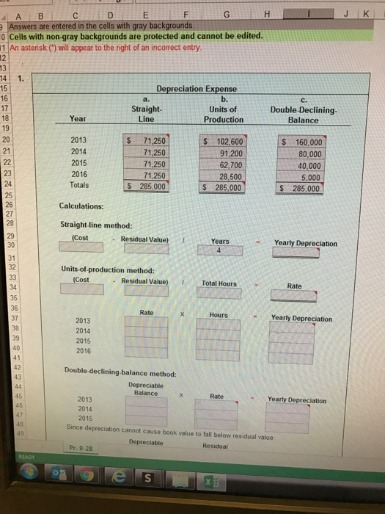Content

De minimis tax rules like these not only serve as low-salience giveaways but are also poorly designed in a way that undermines the integrity of the tax system. Interest rates have risen over 70 basis points in the past 2 months and many municipal bonds issued earlier this year were sold with 3% or lower coupons. A basic bond pricing principle is that when interest rates rise, bond prices fall. A 2% coupon bond issued at par in June should be trading well above 2% now which would cause the bond price to fall below par. This is a helpful approach to thinking about capital gains vs. income tax. Instead, capital gains taxes are levied on earnings made as a profit from the purchase of an asset, such as a vacation house or shares, and the subsequent sale of the same for a higher price.
Coffee and donuts at staff meetings or occasional meals provided to employees who work overtime. A de minimis benefit is something given to employees on occasion and is of such a small value that it is not subject to taxation. When the economy is unstable, employers are faced with difficult decisions around staffing, pay and benefits. Find the latest news and members-only resources that can help employers navigate in an uncertain economy.
Key Corporate Filing Issues for the 2021 Tax Year
The yield of the muni bond is simply divided by 1 minus the income tax rate to determine the tax-equivalent yield. Discount bonds” that were not originally issued at a discount but market conditions from rising rates caused the price of the bond to fall below par.
- Applicability of other exclusions for certain meals and for transportation provided for security concerns.
- The general term has come to have a variety of specialised meanings in various contexts as shown below, which indicate that beneath a certain low level a quantity is regarded as trivial, and treated commensurately.
- Second, it can refer to a rule regarding the determination of the country of origin of a good.
- The de minimis rule is used by the IRS to determine if a benefit provided to an employee is excluded from taxable income because the value is so small and the practice so infrequent that accounting for the value of the benefit is unreasonable or impractical.
- Local voters by election must approve imposing or abolishing the additional sales tax.
This is a problem because most investors choose municipal bonds for tax-free income. Giving up a portion of your return to the IRS is not something any investor wants to do. The de minimis rule is applied to determine if there is a market discount on a bond purchased in the secondary market.
Local Governments
In Europe the average is about USD 190, however, it may vary considerably from country to country. Worldwide, 56 percent of individuals surveyed said they would buy more if the duties were reduced or eliminated.

There is no scholarly framework evaluating existing de minimis tax rules. There is no policy framework to help lawmakers decide why, when, or how such rules should be made. And there is no separation-of-powers framework analyzing when the Treasury Department has the authority to create de minimis tax rules without express Congressional authorization. This Article seeks to fill this gap by analyzing de minimis tax rules along all of these dimensions. It provides a framework for considering when de minimis tax rules are preferable to other policy options and offers important design considerations. Scholars can apply this analysis to the de minimis tax rules that already pervade the Code and policymakers can use it to guide the many more they will consider in the future. The meals, meal money or local transportation fare is provided to an employee because overtime work necessitates an extension of the employee’s normal work schedule.
Law Enforcement Support
According to this https://intuit-payroll.org/, if a discount is less than 0.25% of the face value of a bond for each full year from the time of purchase to maturity, then it is considered too small to be a market discount for tax purposes. It is then treated as a capital gain rather than ordinary income, thereby providing a tax advantage to investors. De minimis does not affect the way original issue discount (“OID”) municipal bonds are treated. The term “OID” is a discount from par value at the time a bond is originally issued. There is no taxation of the original issue discount because the difference between the discount price and the matured value is considered interest, which is tax-exempt.
- Just to reiterate, even if the bond is sold at a gain, it is subject to the income tax rate and not the capital gains tax rate.
- Cash or cash equivalent items provided by the employer are never excludable from income.
- Holiday gifts, provided that they meet the other de minimis benefits qualifications.
- The taxing unit’s budget calls for it to levy $1 million in debt service taxes for the current year.
- The anticipated collection rate is $950,000 divided by $1 million, or 95 percent.
In plain English, if you purchase a discounted municipal bond make sure the discount doesn’t come back to you on sale or at maturity as ordinary income or capital gains. “Tax exempt market” refers to Federal tax exempt income from municipal securities. Income from municipal bonds may be subject to state and local taxes and at times the alternative minimum tax. The taxing unit may continue to calculate the voter-approval tax rate using the multiplier of 1.08 until the disaster calculation time period ends. Steps for Following YearsOnce a taxing unit has collected the additional sales tax for a year, its property tax revenues will reflect any tax rate reduction arising from the additional sales tax. As a result, calculating the no-new-revenue tax rate will not require an adjustment for the additional sales tax.
De minimis value provides faster clearance and opportunity to sell into markets competitively. This can be confirmed through creating a cash flow table that compares the cash flow of a tax-exempt bond with the equivalent cash flow of a taxable bond.

Anything that is given to employees regularly is also not considered de minimis. Things like small gifts, special dinners, and occasional transportation fares are considered de minimis benefits. Whether an item or service is de minimis depends on all the facts and circumstances. In addition, if a benefit is too large to be considered de minimis, the entire value of the benefit is taxable to the employee, not just the excess over a designated de minimis amount. The IRS has ruled previously in a particular case that items with a value exceeding $100 could not be considered de minimis, even under unusual circumstances.
Cash Benefits
Market discount is not treated as tax-exempt interest to the holder because it arises as a result of market forces and not through the action of the issuer. Benefits that are considered de minimis cannot be given a monetary value. In other words, offering money as a gift without taxing it is impossible. On the other hand, de minimis benefits are exempt from taxes because of the common occurrence and little monetary worth of the aforementioned goods.
- The de minimis threshold would be $125 (10,000 x 0.25% x five years), putting the dividing line between the tax rates at $9,875 (the par value of $10,000, minus the de minimis threshold of $125).
- Small market discounts must be treated and recorded according to the de minimis tax rule.
- Flowers, plaques, coffee mugs, or other small gifts for special occasions.
- The anticipated debt tax collections last year were $475,000 (.95 x $500,000).
- The employee must be able to contact clients or colleagues outside of their normal working hours or when their office is closed.
- These include the security type (e.g., general obligation or revenue bond), credit rating of the issuer, maturity date, yield, expected liquidity, among others.
- The recent rise in interest rates has exposed certain municipal bonds priced at a market discount to the de minimis tax rule.
As a result, De Minimus Tax Rule s cost less during these times and are offered at discounts or significant discounts to par. There are a number of important factors that go into determining the price and relative valuation of municipal bonds. These include the security type (e.g., general obligation or revenue bond), credit rating of the issuer, maturity date, yield, expected liquidity, among others. De minimis and its potential tax consequence can also influence the price of a bond in the secondary market. Cash or cash equivalent items provided by the employer are never excludable from income.